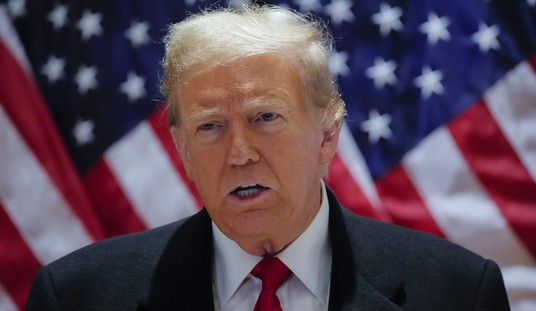Howard Kurtz writes in the Washington Post that “I’m not an economist, but when Tim Geithner unveils his long-awaited bailout plan and the Dow plunges nearly 400 points, that’s probably not a good sign.” Kurtz has a roundup of quotes from different sources suggesting a certain skepticism about its possible effect.
“Investors had been expecting the Obama administration to unveil a shock-and-awe solution Tuesday for the nation’s hobbled banking system,” the NYT reports. “But the main reaction was disappointment as the new plan raised more questions than it answered, sending stock markets — and the shares of banks assumed to be holding swaths of toxic assets — sharply lower.” …
This Huffington Post report doesn’t inspire confidence: “Administration officials were greeted with sarcasm and laughter Monday night when they briefed lawmakers and congressional staff on Treasury Secretary Tim Geithner’s new financial-sector bailout project, according to people who were in the room.
“The laughter was at its height when Obama officials explained that the White House planned to guarantee a wide swath of toxic assets — which they referred to as ‘legacy assets’ — but wouldn’t be asking Congress for money.
The right is really rebelling against the stimulus. Rich Lowry calls it “socialism” … An analysis by Robert Rector of the Heritage Foundation shows that the House version has $264 billion in new means-tested welfare spending that, (safely) assuming it’s never rolled back, will add $787 billion in welfare costs over ten years
Why, if Kurtz’s roundup is to be believed, neither the markets, nor Left nor Right like it. Then why is it passing? Is it because the economic doctors know something the public doesn’t and therefore we should all pipe down and drink our medicine? Maybe. But it’s hard to believe that when even the oracles aren’t sure what they are saying or aren’t saying it. For example, Geithner is alluding to further unspecified steps down the track.
Brian Williams told Geithner in a CNBC interview that taxpayers would like to know whether he’s going to need more money from us. Geithner sidestepped the question, saying it would be cheaper over the long run to be “more forceful up front,” but didn’t explain what that meant.
This stimulus package has acquired an aura of inevitability based on the fact that it’s inevitable. Just what exactly is fated to happen nobody can quite say, only that it will. However, we are reliably informed that we are all going to find out in due time. “Obama bluntly told a Florida town hall yesterday that if his plan doesn’t work, ‘then you’ll have a new president.'” And that’s fair enough because the something as complex as the economy cannot be very accurately modeled. But the stimulus bill compounds the problem not only because many of its effects will be spread over time and will interact with other measures, such as monetary policy or decisions by other central banks, but most of all because it commits to certain acts which may not be appropriate when the time comes. Imagine programming a car to turn left, right or downshift at a point two hours from now without quite knowing where the car will be or how fast it is traveling when those instructions kick in. The feedback loop is too lagged to be of much use. Maybe it would be better if government quit trying to manage the future under situations of such great uncertainty. Instead, it could try and concentrate on discovering the real value of “toxic assets” and engage in a moderate, but immediate stimulus instead of a jobs program dressed up as economic pump priming.









Join the conversation as a VIP Member